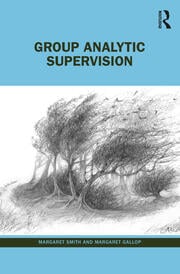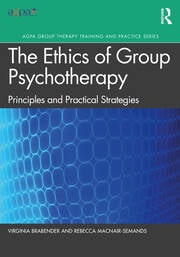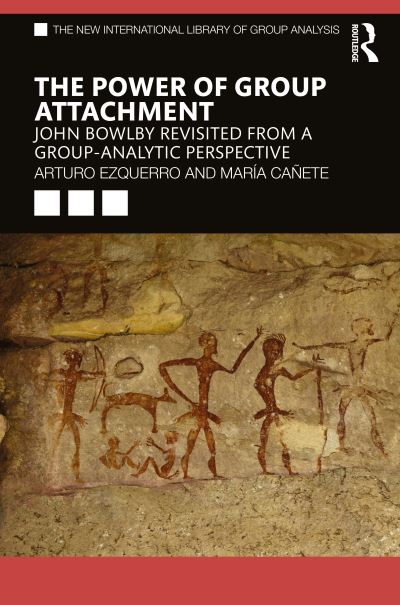A New Pluralistic Paradigm for Research: Diverse Methods for Researching Analytic and Other Groups

Book Details
- Publisher : Routledge
- Published : November 2025
- Cover : Paperback
- Pages : 440
- Category :
Group Psychotherapy - Catalogue No : 98444
- ISBN 13 : 9781041003830
- ISBN 10 : 1041003838
There are currently no reviews
Be the first to review
A New Pluralistic Paradigm for Research: Diverse Methods for Researching Analytic and Other Groups is a comprehensive resource that equips a diverse audience with essential research knowledge. Fourteen informative chapters, organized into two sections, describe a new paradigm, as well as methodologies to research group analytic psychotherapy, different types of groups, and social phenomena.
In addition to making group analytic thinking accessible and offering a practical guide, the Emerging Reality Paradigm promotes the decolonization of research practices, offering an alternative to traditional Western research paradigms. While the focus is on pluralism, readers will also gain valuable insight into both quantitative and qualitative research paradigms. Western and Indigenous thinking is bridged, illustrative examples are interwoven, and real research examples are included, enabling professionals and students to research analytic groups creatively and effectively. Engaging text boxes and figures, suggestions for further research and suggested readings foster deeper understanding.
This book is ideal for researchers, psychotherapists, students, supervisors, trainees, and seminar leaders who seek to gain or deepen their knowledge of group analytic research. It serves as an essential guide for anyone interested in (analytic) groups and the methodologies that inform them.
Reviews and Endorsements
Acquainted with Susanne Vosmer’s previous publications, I have been impressed by her range and willingness to ‘think new thoughts’ about the trade of psychotherapy and group analysis. She brings a wealth of insights from psychology and other disciplines to her work.
I am excited to read about her new book project and admire the ambition involved, to create a handbook of research for group analysis whilst noting that group analysis can itself constitute a useful mode of re-search. This is long overdue. Wide ranging scope it aims to cover many existing nodes of research but take it further, to integrate the contribution of non-Western, non-ethnocentric modes of knowledge. Perspectives from far Eastern philosophy and practice, and indigenous experience, for examples, are seldom included in psychotherapy literature let alone research, and are welcome (essential) guests to the table for further understanding.
I heartily recommend this book proposal and believe it will address some significant gaps in our present knowledge. I do not know of another book written in this spirit.
Martin Weegmann, Clinical Psychologist, Group Analyst and writer
In her groundbreaking book, Susanne Vosmer initiates a truly pluralistic discussion on research in Analytic and other forms of Group Psychotherapy. She constructs an alternative yet complementary framework to evidence-based research, going beyond Eurocentric and American-centered models of knowledge and research practice. Vosmer writes about research in a “re-searching” way: open, reflective, and critically engaged.
The book not only offers a more complex and nuanced perspective on research in group psychotherapy, but also introduces a wide array of methods. Importantly, Vosmer does not privilege one methodology over another; instead, she fosters a dialogue between qualitative and quantitative approaches, promoting mutual enrichment rather than competition.
This is an essential read for both researchers and clinicians interested in the evolving landscape of group psychotherapy research.
Anna Zajenkowska, Associate Professor at Vizja University in Warsaw
This is a timely and much needed volume that will illuminate many group-analytic research projects in different countries and cultures. Susanne Vosmer has produced a comprehensive text that goes beyond conventional Western conceptions of reality, knowledge and truth. In fact, she incorporates cross-cultural and complementary philosophical conceptions, and successfully challenges unnecessary divisions between the traditional quantitative and qualitative research paradigms. Group analysts shall value the usefulness of this book, which validates clinical effectiveness and also explores research methodology into median, large, and organisational consultancy groups. I can warmly recommend it.
Arturo Ezquerro, consultant psychiatrist, group analyst, and author of Group Analysis Throughout the Life Cycle
As Susanne Vosmer writes in her introduction to this important book, group analytic research is a “neglected child”. Her book offers cogent arguments for giving this offspring proper care and attention. Dr Vosmer has been one of the relatively few passionate advocates for research in group analysis. She has pulled her ideas together and broken new ground in writing the first book in the field of Foulkesian group analysis that is dedicated to research.
As would be expected of her, this book is meticulously researched and written in an accessible and interesting manner. It should appeal to experienced and fledgling researchers. It serves as a “how to do research” guide for those wishing to step into the field of research and to the theories and philosophies underpinning research methodologies. Dr Vosmer highlights that these are rooted in Western thinking. There is a consequential need to question this thinking to ensure that practice and research are relevant to societies that group analysis seeks to serve. Hence, the need for a pluralistic paradigm.
This groundbreaking book should find a readership amongst qualified practitioners, trainees, teachers, academics and researchers. It should find its way onto course reading lists.
Andy Downie, group analyst, supervisor and trainer
Table of Contents
General Introduction
Introduction to Section One
Introduction To Section Two
PART 1
1. The Excluding Histories of Philosophy & Science AND Dominance of Positivism Is An Alternative Research Paradigm Needed?
2. Why A Paradigm Shift Is Needed Introducing the Emerging Reality Paradigm (ERP) Part 1
- Why A Paradigm Shift Is Needed Introducing the Emerging Reality Paradigm (ERP) Part 2
PART 2
3. Learning Traditional Research & Nomenclature Through Group Analysts
4. Diffraction & Quantitative Methods Combining Quantitative Methods in Group Analytic Research with AI
5. Less Frequently Used Methods For Group Analytic Research
6. ‘Living’ Group Analytic Theories To Grasp Related Notions, To Start Theorizing & To Generate Theories
7. The Trouble With Qualitative Methods Is It Possible To Do Qualitative Analysis After Coding In Group Analytic Research?
8. Application of Diverse Analytic Methods to Research Unconscious Group Processes, Sensitive Topics & the Hidden
9. Adopting Philosophical Foundations That Shift The Focus To Diverse Mixed Methods In Group Analytic Research
10. Secondary Data: Analysis Methods for Documentary, Therapy & Supervision Group Research
11. Learning About Archival Research & Research Writing Through Illustrative Examples
12. Child and Adolescents Research & Ethics
13. Researching Median, Large & Consultancy Groups
About the Author(s)
Dr Susanne Vosmer is a practicing group analytic psychotherapist, clinical psychologist, researcher, and research supervisor. She is a seminar leader at group analytic training organizations. She carried out several studies and has written on diverse topics. Previously, she was a clinical tutor on the Doctorate for Clinical Psychology in Hull, where she also taught psychodynamic theory. She is a member of the editorial board of the International Journal of Psychotherapy, edited a special Women’s Issue on Love, and is involved in editorial activities for other journals. Her interests include forensic psychotherapy, psychotherapy research, love studies, politics, and literature. Also trained in EMDR, Clinical Hypnosis, and Reiki, Susanne is a research supervisor at the New School for Psychotherapy and Counselling (NSPC) in London, examiner at the NSPC and the Institute of Group Analysis in London, and responsible for the academic development of the course at Group Analysis North, United Kingdom.
Customer Reviews
Our customers have not yet reviewed this title. Be the first add your own review for this title.
You may also like
The Ethics of Group Psychotherapy: Principles and Practical Strategies
Virginia Brabender
Price £33.29
save £3.70
The Power of Group Attachment: John Bowlby Revisited from a Group-Analytic...
Arturo Ezquerro
Price £31.99
Group Psychotherapy: The Psychoanalytic Approach: Second Edition
S.H. Foulkes
Price £37.79
save £4.20







